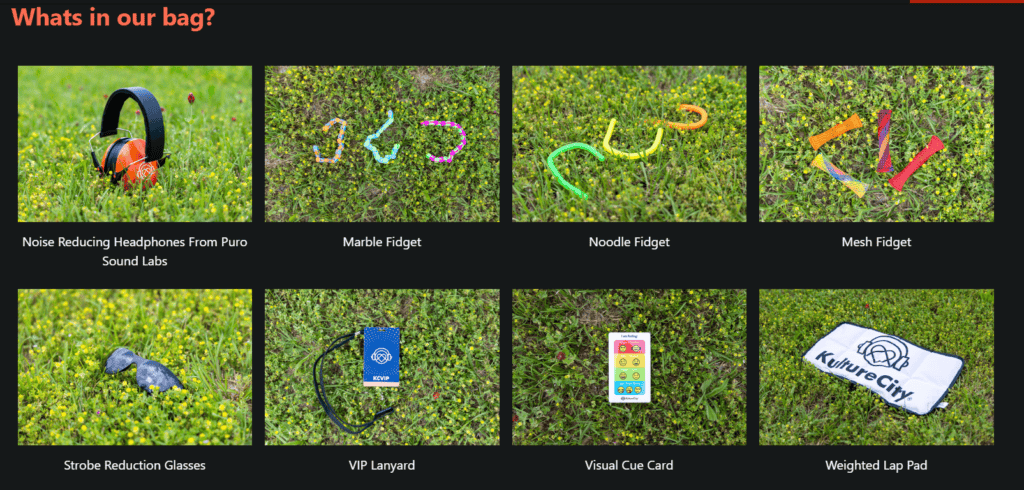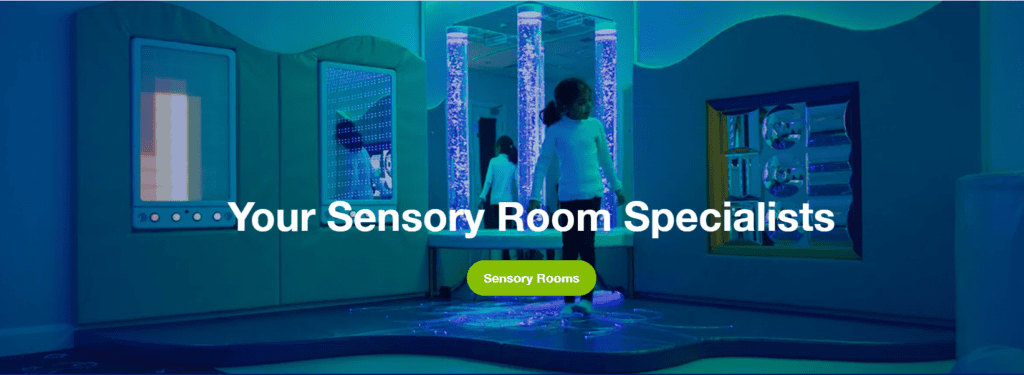
Sensory processing disorders (SPD) affect a significant number of individuals, particularly those who are neurodivergent or have hidden disabilities. These individuals often face challenges in navigating public spaces, making it essential to create inclusive environments that accommodate their sensory needs. Several organisations worldwide are dedicated to improving sensory accessibility and advocating for those with hidden sensory disabilities. Here are five noteworthy organisations making significant strides in this area.

Kulture City is dedicated to creating sensory-inclusive environments in public spaces such as schools, museums, and airports. They provide training for staff in sensory sensitivity and awareness, equipping employees with the knowledge to better support individuals experiencing sensory overload or other challenges. By enhancing staff awareness, Kulture City improves the overall experience for those with sensory processing challenges, ensuring they can navigate these spaces comfortably.
Kulture City pioneer in the provision of sensory bags. These bags contain tools like noise-canceling headphones, fidget tools, and other items that help individuals manage sensory overload. In addition to these bags, they also create sensory rooms and deploy sensory activation vehicles that offer safe, calming spaces for individuals to decompress. These resources empower individuals to engage more fully in their environments. These resources empower individuals to engage more fully in their environments.

The organisation offers a certification program for venues to become "sensory inclusive." This certification ensures that locations meet specific standards for accommodating individuals with sensory needs, making it easier for these individuals to seek support in various public settings.


Sensory Access is committed to promoting sensory accessibility in public spaces and events. Their mission revolves around advocating for better accommodations for neurodivergent individuals and others with sensory processing disorders.
The organisation provides a range of resources and training for organisations to understand and implement sensory-friendly practices. This includes creating environments that are more accommodating to individuals with sensory sensitivities.

Sensory Access is dedicated to raising awareness about the importance of sensory inclusivity in the community. Through educational campaigns and initiatives, they work to inform the public and increase understanding of sensory processing disorders.
They partner with various businesses and venues to develop more inclusive environments. These collaborations ensure that sensory accessibility becomes an integral part of public planning and design. For example, their upcoming “Sensory-friendly Wicked: The Untold True Stories of the Witches of Oz” is an inclusive and sensory-friendly musical.


Their vision is a world where no one is left out or overlooked, where people with non-visible disabilities are recognised, respected, and fully included in all areas of life. Where environments are supportive, accessible, and inclusive.
The Sunflower Lanyard program is a widely recognised initiative designed to help individuals with hidden disabilities discreetly indicate their need for additional support in public spaces. This initiative has been widely adopted across public venues and public transport systems throughout the UK and internationally.

Numerous establishments acknowledge the sunflower lanyard, enabling staff to identify and assist those requiring extra support. This recognition creates a more inclusive and accessible environment. In the UK, venues such as airports, supermarkets (e.g., Tesco, M&S), hospitals, and banks actively participate in the program. They recognise people with Hidden disabilities through the lanyards and are attentive to offer assistance when required.
Wearing the sunflower lanyard is entirely voluntary, making it accessible to anyone who identifies as having a hidden disability. This approach allows individuals to seek assistance without feeling singled out or uncomfortable.

The Sunflower initiative is expanding internationally, with several countries beginning to adopt the program to support individuals with hidden disabilities. This expansion is crucial in raising awareness and promoting inclusivity on a global scale.


Rompa brings over 30 years of expertise in sensory solutions, specialising in the design and manufacture of customised sensory equipment. Their team is dedicated to creating inclusive sensory environments that cater to a wide range of needs, from soothing relaxation areas to dynamic learning spaces. Offering an end-to-end service, Rompa collaborates closely with professionals such as Occupational Therapists (OTs) to develop tailored sensory rooms and integrated therapy spaces. Their projects span various settings, including schools, care homes, and hospitals, delivering bespoke solutions that promote learning, relaxation, and sensory exploration for individuals of all ages and abilities.
Rompa provides an end-to-end service in providing sensory rooms and equipment specifically designed to meet the diverse needs of individuals with sensory processing disorders. These resources create safe spaces for individuals to explore and engage with their senses.
The organisation offers training and consultancy services to help professionals understand sensory needs and create suitable environments. This training empowers educators, caregivers, and therapists to better support individuals with sensory challenges.
Rompa's products are designed to enhance sensory experiences, ensuring accessibility for all individuals. Their commitment to inclusive design helps create environments that cater to diverse sensory needs.

Rhino boasts over 75 years of combined sensory expertise, specialising in customised sensory equipment solutions. Their team focuses on creating inclusive sensory environments that address various needs, from calming spaces to interactive learning areas. Collaborating closely with professionals, including Occupational Therapists (OTs), Rhino designs integrated therapy rooms and bespoke sensory spaces. Their projects range from large installations in football stadiums to creating sensory buses and intimate classroom corners, ensuring tailored solutions for learning, relaxation, and exploration.
Rhino ensures projects are completed within the specified timelines to meet customer requirements. Their team provides ongoing advice and guidance throughout the project process, ensuring a seamless experience. Customers also receive support from the initial concept through to the finished sensory space, making the process straightforward and effective.
Rhino's products are designed with infection control in mind, offering sensory-friendly equipment that is easy to clean and maintain. This focus ensures that users can safely explore their senses in a hygienic environment. Additionally, with a nationwide presence, Rhino provides services across the UK, from remote areas like the Scottish Isles to major urban centres, guaranteeing accessibility for all.
Rhino's commitment to customer support is evident through their sensory team, always available to provide personalised advice and recommendations for both small queries and large-scale projects. Their extensive experience and comprehensive service make Rhino a leading provider for creating bespoke, functional, and inclusive sensory environments.

These organisations are making significant strides in improving sensory accessibility for individuals with hidden sensory disabilities. By advocating for sensory-inclusive environments, providing resources, and raising awareness, they contribute to creating a society that values and supports all individuals, regardless of their sensory needs. As awareness of sensory processing disorders continues to grow, these organisations play a vital role in ensuring that individuals can navigate their environments with greater ease and support.